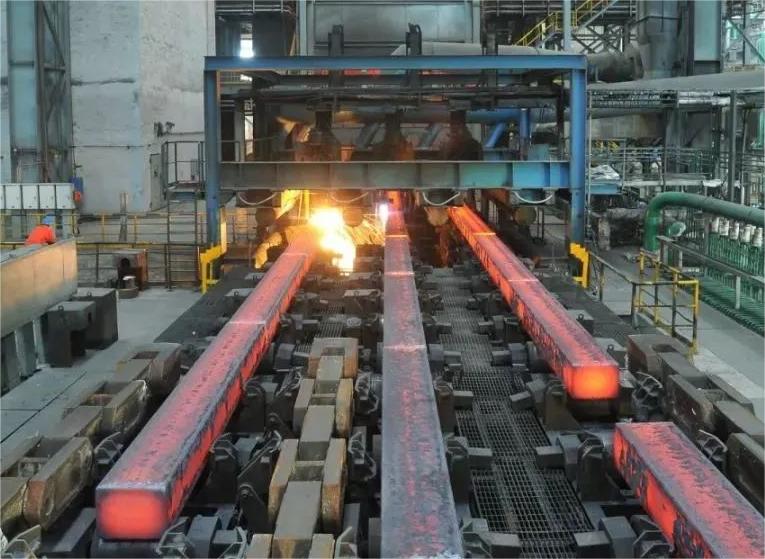The difference between “special steel” and “high-quality steel”
Nov. 07, 2023
The difference between “special steel” and “high-quality steel”
Twenty years ago, the concept of "high-quality steel" was rarely mentioned. That is to say, when mentioning "special steel" at that time, "high-quality steel" was included. When talking about what "special steel" is, it is often described in this way. , that is, the type of steel produced by the converter is generally called "common steel"; the type of steel produced by the electric furnace is generally called "special steel".

Regarding their specific classification methods, industry leaders and experts will have more professional opinions...
Common varieties of “high-quality steel”
High-quality steel (between special steel and ordinary carbon steel, generally does not contain alloys): mainly refers to good mechanical properties, good comprehensive properties of tensile and compressive strength and toughness, good mechanical properties and easy processing, and mechanical effects after heat treatment Significantly improved. In terms of composition, the steel has fewer impurities and the gold particles are smaller and more uniform.
Common high-quality steels include carbon structural steel, composite steel, mold steel, spring steel, high-quality steel rounds, high-tech steel, bearing steel, high-quality carbon steel, gear steel, carbon industrial steel, synthetic steel, carbon structural steel, and pipes. Billet steel, roll steel, combined steel, etc.
A. Carbon structural steel: Simply put, high-quality carbon structural steel is referred to as carbon structural steel; specifically, its carbon content is less than 0.08%. Low-carbon structural steel is used for rolling thin plates and deep-drawing products; medium-carbon structural steel is used for manufacturing quenched and tempered parts with less rain, including tie rods, bushings, gears, piston pins, fasteners, etc.; high-carbon structural steel The purpose of knotted steel is to manufacture springs and parts requiring wear resistance.
B. Combined steel: Steel used as mechanical parts and various engineering components and containing one or several certain amounts of alloying elements. It can be divided into ordinary alloy structural steel and special-purpose alloy structural steel. Alloy structural steel is widely used in structures such as ships, vehicles, aircraft, missiles, weapons, railways, bridges, pressure vessels, and machine tools.
C. Mold steel: Mold steel can be roughly divided into three categories: (cold work mold steel), (hot work mold steel) and (plastic mold steel), which are used for forging, stamping, cutting, die-casting, etc.
D. Spring steel: refers to steel specially used for manufacturing springs and elastic elements due to its elasticity in the quenched and tempered state.
E. Bearing steel: It is the steel used to make balls, rollers and bearing rings. Bearings are subjected to great pressure and friction when working, so the bearing steel is required to have high and uniform hardness and wear resistance, as well as a high elastic limit.
F. Gear steel: It is a general term for steel that can be used to process and manufacture gears. Gear steel is one of the most demanding key materials among special alloy steels used in automobiles, railways, ships, and engineering machinery. It is a manufacturing material for core components that ensure safety.
Common varieties of “special steel”
Special Steel - There is no unified definition and concept of special steel in the world. It is generally believed that special steel refers to having special chemical composition (alloyed and carbon steel with one or several alloying elements added in appropriate amounts) and using special processes. Production of steel with special organization and properties that can meet special needs. Compared with ordinary steel, special steel has higher strength and toughness, physical properties, chemical properties, biocompatibility and process performance. Such as high strength and hardness, good plasticity and toughness, wear resistance, corrosion resistance, and many other excellent properties.
A. Tungsten steel and manganese steel: very hard, used in manufacturing metal processing tools, tractor tracks and axles, etc.
B. Manganese silicon steel: extremely tough, used to manufacture spring sheets, spring rings, etc.
C. Molybdenum steel: resistant to high temperatures and used to manufacture aircraft crankshafts, particularly hard tools, etc.
D. Tungsten chromium steel: high hardness and strong toughness, used for machine tool cutting tools and molds.
E. Nickel-chromium steel (stainless steel): has strong corrosion resistance and is not easily oxidized. It is used to manufacture acid-resistant towers, medical equipment and daily necessities in chemical production.
Special steel is the most important type of steel used in most industries of the national economy, such as machinery, automobiles, military industry, chemical industry, home appliances, ships, transportation, railways and emerging industries. China's special steel industry is responsible for the special steel varieties required by national defense and military industries, high-tech industries, and key industries such as machinery and automobiles.









